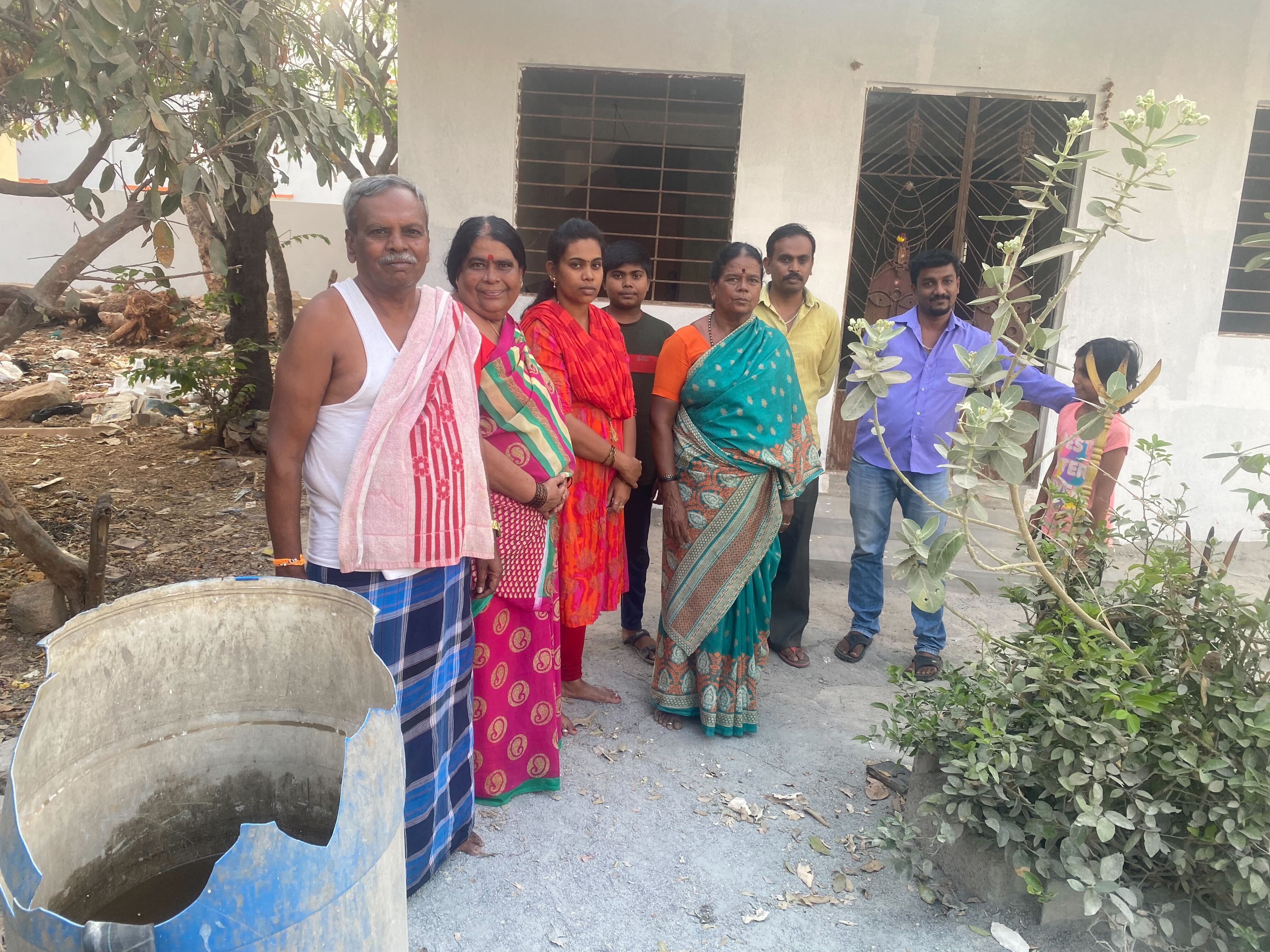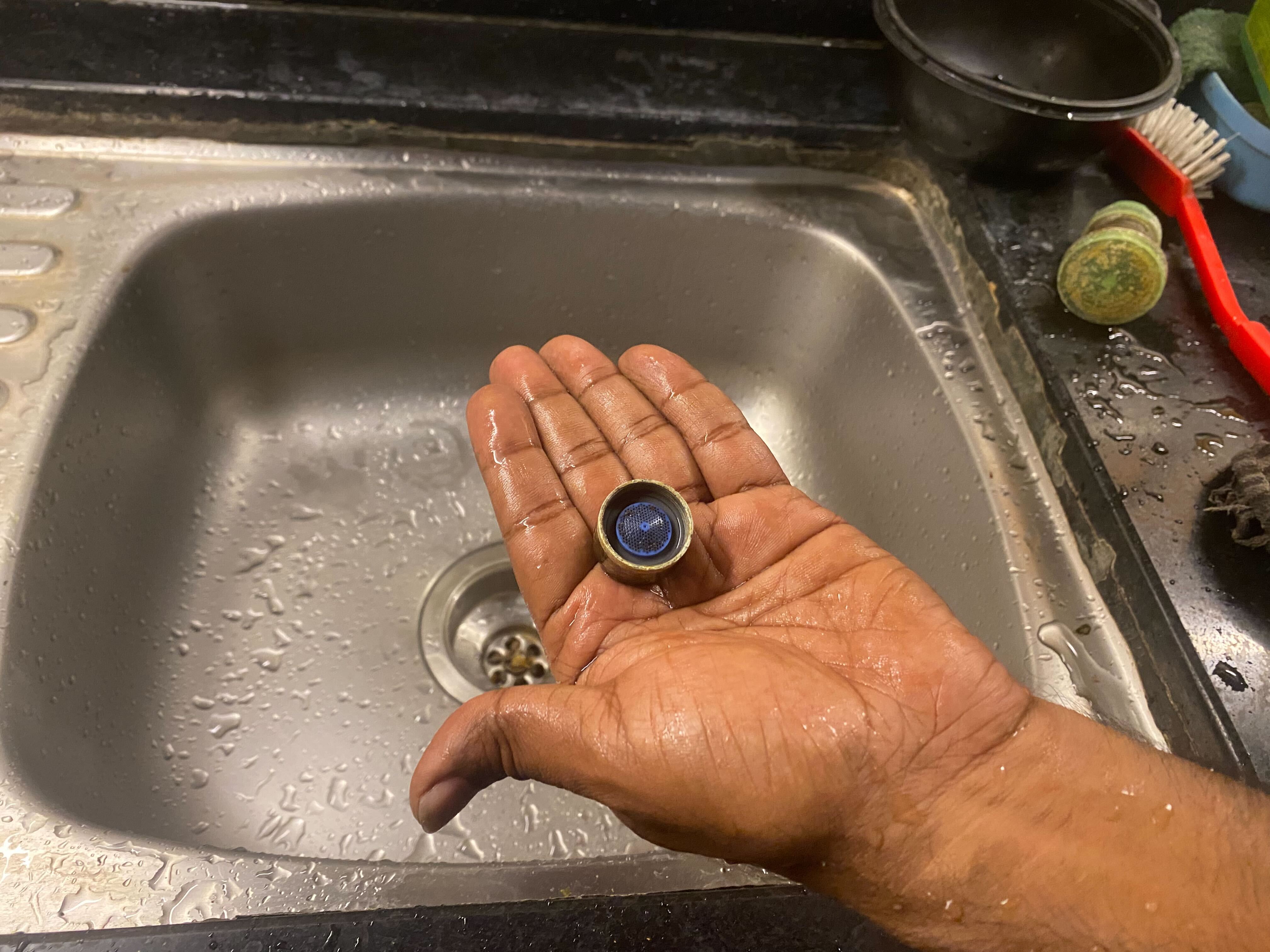In India’s Silicon Valley, voters only want one thing from 2024 elections: water
Bengaluru is grappling with a water shortage so severe, there isn’t enough to take a shower or flush a toilet, and all residents want from a new government is a resolution of the crisis, Stuti Mishra reports
Your support helps us to tell the story
From reproductive rights to climate change to Big Tech, The Independent is on the ground when the story is developing. Whether it's investigating the financials of Elon Musk's pro-Trump PAC or producing our latest documentary, 'The A Word', which shines a light on the American women fighting for reproductive rights, we know how important it is to parse out the facts from the messaging.
At such a critical moment in US history, we need reporters on the ground. Your donation allows us to keep sending journalists to speak to both sides of the story.
The Independent is trusted by Americans across the entire political spectrum. And unlike many other quality news outlets, we choose not to lock Americans out of our reporting and analysis with paywalls. We believe quality journalism should be available to everyone, paid for by those who can afford it.
Your support makes all the difference.As voting concludes in India amid a heatwave, people in the southern city of Bengaluru are focused on a singular issue: the paucity of water.
The city, known as India’s Silicon Valley due to its IT industry, has been grappling with a water crisis so severe that some days there isn’t enough to take a shower or even flush a toilet.
However, the crisis has received scant attention during the ongoing election campaigns.
The Karnataka state government, run by the opposition Congress party, has downplayed the severity of the problem and instead accused prime minister Narendra Modi’s Bharatiya Janata Party (BJP), its chief opponent, of hyping the crisis to create unrest ahead of the elections.
The six-weeks long seven voting phases came to an end on 1 June (Saturday) and the result will be announced on Tuesday.
For years, politicians have made promises to fix Bengaluru’s water supply problems by expanding the municipal pipelines. But residents complain that all they have received is apathy.
In the initial days of the ongoing crisis, they recall, some local legislators sent water tankers but only after decking them with their posters.
Tankers are the city’s lifeline. Men, women, and even children lining up to fill their buckets and pots from a water tanker is a familiar sight in Bengaluru.
For many residents, however, even tankers are a luxury.
“I have used half of my week’s earnings to pay for water,” Naranamma, 65, who runs a small shop next to her house in Ambedkar Nagar colony on the outskirts of the city, tells The Independent.
Next to her house is an empty patch of land dug up for a borewell which brings up water from the ground aquifers. But there’s hardly any water left in the ground to pump out.
Metropolitan Bengaluru’s 15 million people utilise about two billion litres of water every day, the bulk of which is piped from the nearby Cauvery River and some from borewells.
Below-average rainfall this year has reduced the supply from the river and left the city’s borewells dry.
Longtime residents of the city say that while water shortage is not uncommon in Bengaluru, they have never seen a crisis like this.
A municipal pipeline in Ambedkar Nagar that brings water from the Cauvery has not supplied a drop in almost two weeks, the residents say. They are now forced to pay exorbitantly high rates for water from the tankers, if they can’t afford it at all.
“We have to use whatever we get or buy water from tankers,” said Ramaswamy, 63, who works in a nearby ice cream factory.
He and his wife, both in their sixties, said filling up buckets and carrying them back is a difficult task but they don’t have an option.

“Politicians come and promise us that the water supply will be restored, but after elections, they all disappear,” said Mamta, 58, a longtime resident, identified only by one name.
Some time ago, municipal workers placed a white tank in one of Ambedkar Nagar’s lanes to collect piped water when it’s released once or twice a week. The tank barely stores a few buckets of water but 20-30 families have to depend on it.
“Sometimes, they release water at 2am at night. Who is going to fill up buckets at that time?” asked Gauri, who is forced to purchase water from the tankers even though her house has a metered municipal water connection.
To curb price gouging, the government announced that it was taking control of all tankers. But residents complain that private vehicles are still running and they refuse to supply them water if they don’t pay higher prices.
And even for these tankers, getting water has been a challenge in recent weeks. They are driving further out of the city to find water sources.
In the Whitefield colony of Bengaluru, people living in high-rises allege they paid the price for raising their voices.
“After my complaint about irregular supply, my society did not receive any water for a few days,” said a resident who did not want to be named.
The deputy chief minister of Karnataka, of which Bengaluru is the capital, said the state has not experienced such a drought in the past three to four decades.
“Though there was drought earlier, we had never declared such a large number of taluks (sub-districts) as drought-affected,” DK Shivakumar said.
Although the crisis has affected almost everyone in the city, it has also divided Bengaluru’s population. On one side are people in semi-urban and poor neighbourhoods who have to pay exorbitant prices to fill buckets from tankers. On the other are posh localities where community leaders deal with tanker drivers and ask residents to ration their use.

But all residents say the way they use water has changed forever. In most societies, residents are being penalised for using excess water or washing their cars more than once a week.
“We are living under a strict protocol, no one is allowed to waste water, and there is no water to waste,” said Piyush Sharma, an engineer living in ITI colony.
“We fill buckets and use that to wash ourselves, we have to fill up the tanks to use the toilet flush,” added Mr Sharma, 44, who moved to Bengaluru 20 years ago to follow his dream to become an engineer.
But Mr Sharma says his family is thinking about moving out.
“We will probably leave for at least a few weeks until this crisis gets over. You can’t raise young children in an atmosphere like this,” the father of two said.

In the past few decades, Bengaluru expanded rapidly and new colonies sprung up even before municipal water and sewage connections could be laid out.
This means that even though groundwater levels have depleted, digging for borewells continues in many areas despite government prohibition. Real estate developers dig through a site, use the water they can get and then move on to another site.
This is the root of the water crisis, according to Sandeep Anirudha, an activist and founder of Citizen Matters, an organisation working to raise awareness about environmental and ecological issues.
“There is widespread corruption and mismanagement that has brought the city to this chaos,” said Mr Anirudha.
The city once had over 2,000 lakes that served as a natural recharger for groundwater. But most of the lakes disappeared because of unplanned construction. The ones that remain are not in good condition.
Experts say this did not happen overnight. Large parts of the city’s ecology have been altered for roads and government projects to meet the demands of the growing population.
“Most of the lakes have been encroached by the Bengaluru Development Authority only,” says Shashank Palur, senior hydrologist at WELL Labs, who has been working on assessing the city’s groundwater levels.
Mr Palur says the lakes and wells served as a source for filling up the city’s aquifers, but large-scale construction and concretisation have led to groundwater depletion.
“The government insists bringing water from Cauvery to more areas will solve this problem. But that’s not the solution,” says Mr Anirudha.
“The city needs its own water sources, its groundwater and lakes need to be restored, instead of bringing water from a nearby river which is more expensive.”
Bengaluru, he added, is facing an ecological crisis and not an engineering crisis.
In the meantime, residents are finding their own solutions. Some have found ways to harvest rainwater in their homes while others hope things will change after the elections.
“I built this house in the 1980s, we never had regular water but we managed to get by,” said Naramma. “All I want from the new government is water and a hospital, we can manage with everything else.”

Join our commenting forum
Join thought-provoking conversations, follow other Independent readers and see their replies
Comments